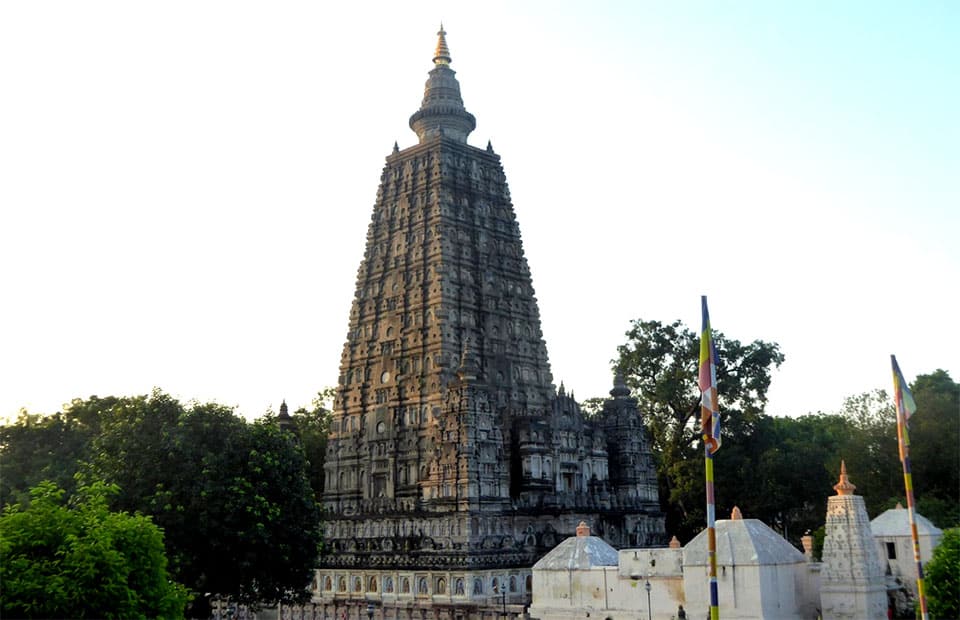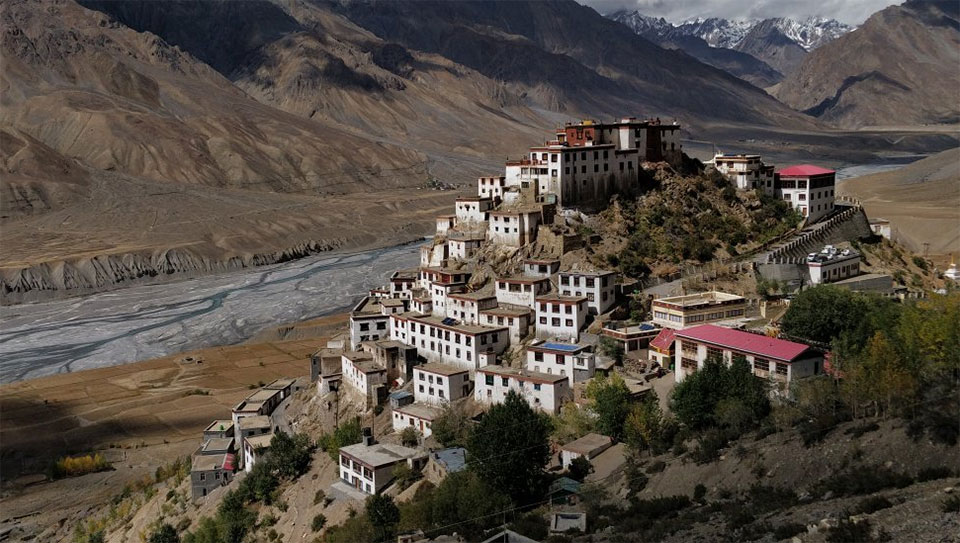Must Visit: These Are The Largest Buddhist Temples In The World
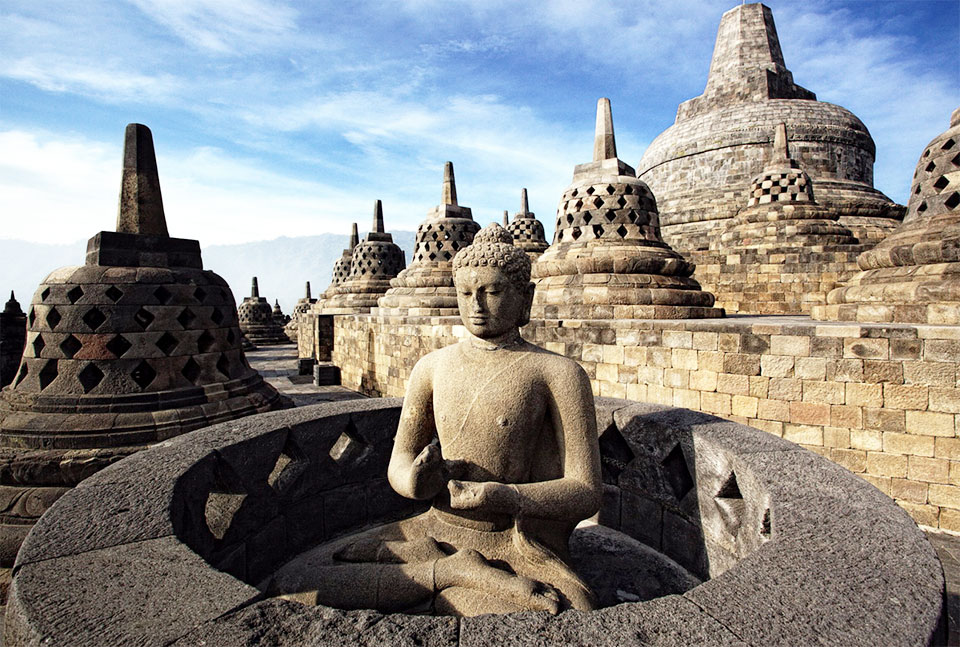
Buddhism, the world’s fourth-largest religion and philosophy with over 520 million followers, was founded in 5th century BC by Siddhartha Gautama popular as Lord Buddha. Based on the teachings of Lord Buddha, Buddhism talks about the journey of life and realistic observation suffering and ways to end this suffering to attain the nirvana. Founded in northeastern India, Buddhism found wide acceptance in those days as it librated people from shackles of caste tyranny. After Buddha, his disciples took his teachings across the Asian subcontinent under the patronage of peace-loving kings to spread the message of Ahimsa, i.e. nonviolence.
Largest Buddhist Temples: Wherever the teachings of Buddhism reached, people accepted it with openness, and it left a deep impression on societies not just in terms of religious practice but art, culture, and architecture. The pursuit of nirvana is based on Four Nobel Truths, and this finds reflection in all big and small temples across the world. Here are some of the largest Buddhist temples across the world:
- Borobudur Temple Compounds, Indonesia
This is one of the greatest Buddhist monuments in the world built in the 8th and 9th centuries by during Syailendra dynasty. Situated in the Kedu Valley in Central Java in Indonesia Borobudur Temple is an architectural masterpiece built in three tiers. On the pyramidal base, there are five concentric square terraces with three circular platforms and a monumental stupa at the top. This is in accordance with the Buddhist conception of three superimposed spheres of the universe. There are 72 openwork stupas around the circular platforms with statues of Lord Buddha. It was in a dilapidated state, but it was restored with UNESCO’s help in the 1970s. This protected world heritage site attracts millions of tourists from across the world every year.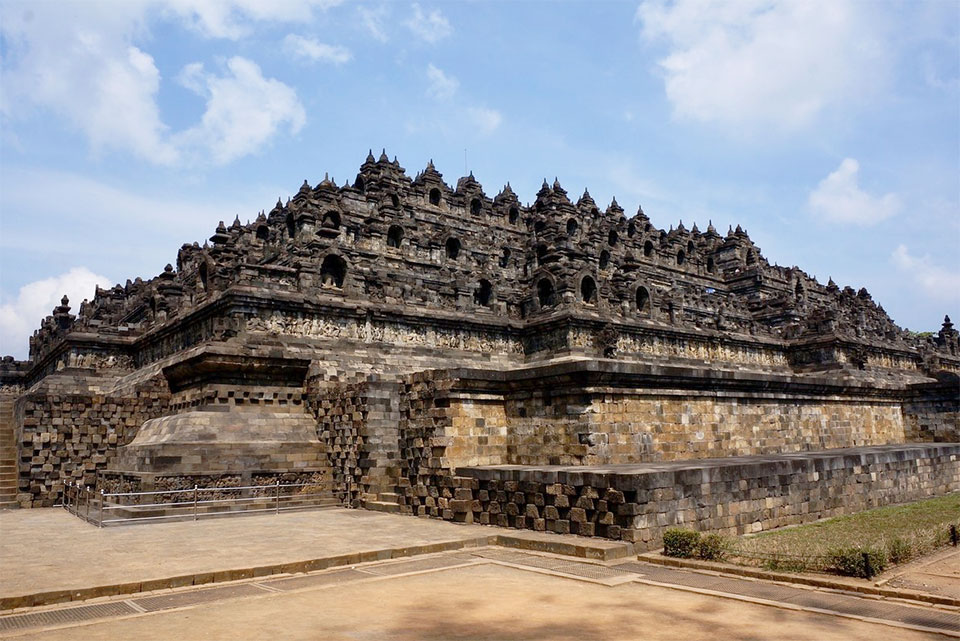
- Bagan Temple of Myanmar
This holy Buddhist site is one of the largest in the world comprising temples, pagodas, and stupas. Situated on the banks of the Ayeyarwady River in Myanmar, Began Buddhist temples were built from 1000 to 1200 AD by kings of Pagan Kingdom. There are as many as 4400 temples of architectural brilliance. Bagan lost its political significance in 1287 when the Mongols attacked the city, but it continued to flourish as a holy Buddhist site. Millions of followers of Buddhism visit this UNESCO Heritage Site to be closer to the ultimate truth.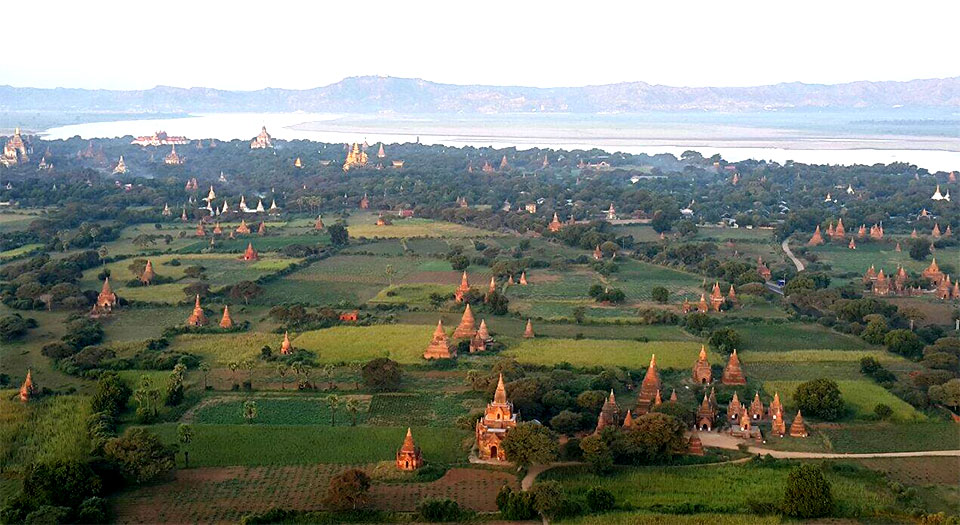
- Shwedagon Pagoda of Myanmar, Yangon (Rangoon)
This one another architectural Buddhist masterpiece in Myanmar known for its golden aura signifying the concept of Amida i.e. land of infinite lights. The 326-foot-tall Shwedagon Pagoda or Golden Pagoda is situated on Singuttara Hill near the Kandawgyi Lake. This holy Buddhist shrine was first built sometime during the 6th and 9th centuries by the Mon. The 99 meters high main golden stupa is the main attraction. It is believed that the main pagoda is platted with gold in the range of 9 to 60 tons of gold.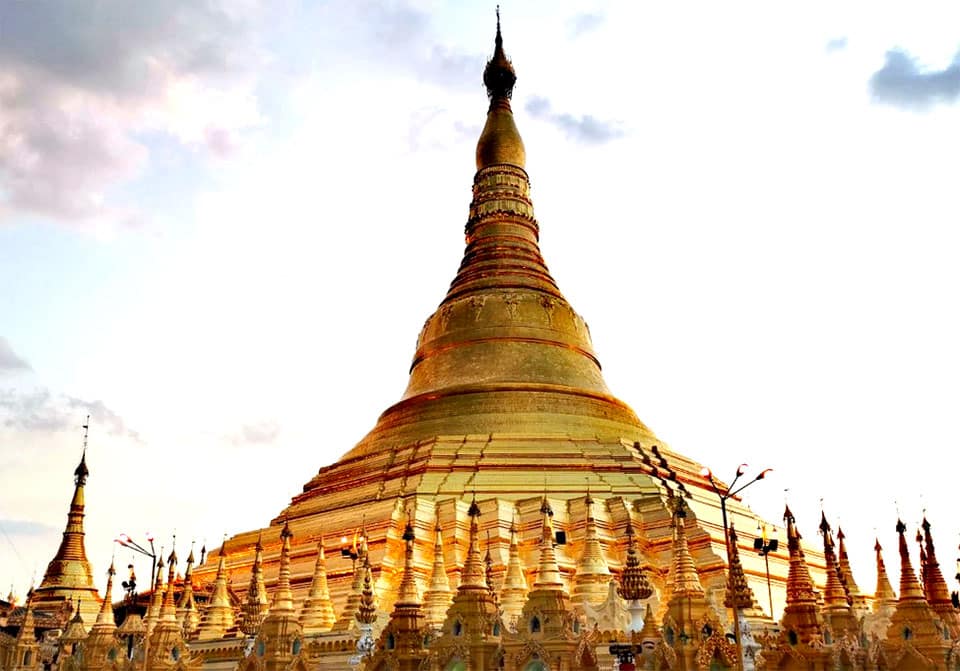
- Mahabodhi Temple of Bihar, Bodh Gaya, India
This temple is of special religious significance as Lord Buddha attained enlightenment here, in Bodh Gaya in the modern-day Indian state of Bihar. According to Buddhist scriptures, Lord Buddha attained enlightenment here under the banyan tree, where the main stupa is located. Just 100 km from the capital city of Patna, the holy place was first built by emperor Ashoka of the Mauryan dynasty in 250 BCE. The present structure of one 180 feet shikhara and two small straight-sided towers was build during the 2nd and 3rd centuries. It was restored several times during the 19th century. - Kye Gompa (Key Monastery, Key, Himachal Pradesh 172114, India), India
This spiritual abode located at an altitude 1,166 meters above sea level in the high Himalayas was built in the 11th century by Dromtön. Kye Monastery is one of the best architectural examples of the “fort monastery” Pasada style. Although this site was destroyed several times by attackers, it maintained its spiritual significance among worshippers. Situated near the Spiti River in the Spiti Valley of the Indian state of Himachal Pradesh this Tibetan monastery is one of the main learning centres of Buddhist philosophy.
There are several other Buddhist temples across the world. The common link between all these temples is the assimilation of local architectural brilliance with an intact core of the Buddhist style of stupa and shikhara. You can visualize it in the 7th century, Jokang Temple of Lhasa, in India and Pha That Luang of Laos. Some of the great Buddhist temples are the Wat Arun temple of Bangkok of Thailand, the Paro Taktsang temple of Bhutan, Taung Kalat of Myanmar.
Have you read?
# Largest crude steel-producing countries in the world, 2020.
# Most expensive hotels in the world for high net worth individuals, 2020
# Most traffic-congested cities in the world, 2020
# Cities around the world with the most and least stressed-out employees, 2020
# Countries most and least prepared to deal with an epidemic or pandemic like the Coronavirus
Bring the best of the CEOWORLD magazine's global journalism to audiences in the United States and around the world. - Add CEOWORLD magazine to your Google News feed.
Follow CEOWORLD magazine headlines on: Google News, LinkedIn, Twitter, and Facebook.
Copyright 2025 The CEOWORLD magazine. All rights reserved. This material (and any extract from it) must not be copied, redistributed or placed on any website, without CEOWORLD magazine' prior written consent. For media queries, please contact: info@ceoworld.biz



